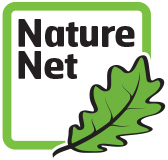Are you now being asked to act as caregiver and educator? Turns out not everyone is trained in homeschooling, curricula development, or lesson planning – and these are stressful times for many of us. Nature Net has a few tips and resources designed to help!
It’s important to note that we as parents and teachers cannot properly care for our dependents if we ourselves are not healthy, hopeful, and energized.
Nature Is Good For Us!
- How Nature Benefits Your Health: Yale Environment – We here at Nature Net have always known nature is good for our health and well-being, but this newly release article on an extensive research-based initiative out of Yale provides proof!
- Nature in a Time of Covid-19: Living on Earth – Check out this (4/20/2020) interview with Richard Louv, the author of “The Last Child in the Woods,” who notes the explosion of studies showing the health benefits of nature time (13 minute listen)
- Researchers Place $6 Trillion Value on Mental Health Benefits Provided by Protected Areas: National Parks Traveler – A team of researchers in Australia has put a dollar figure on the mental health benefits, saying that protected areas such as national parks around the world provide $6 trillion in benefits.
Virtual Learning Tips for Parents
- Parent’s Guide to Virtual Learning: National Center for Learning Disabled – this article published by the National Center for Learning Disabled is useful for all parents and children of all abilities
- Tips for Homeschooling During Coronavirus: National Public Radio – spoiler alert, the last tip is to be forgiving of yourself and your kid – see below for more tips on maintaining your own mental health. (17 minute listen)
- Home Schooling, Simplified: New York Times – a piece on how to make a cramped living space conducive to learning.
- How to Home School During Coronavirus: New York Times – it’s not easy, even for professionals. Start with these sample lesson plans.
- UW–Madison’s Field Day Lab game designers have developed options for productive screen time. Their educational — but, most importantly, fun — games aimed at middle and high schoolers are available for free and on the GameUp section of the educational website BrainPOP. More info here.
For Your Own Mental Health
- Child Mind Institute – An extensive list of resources for mental health with COVID-19 specifically in mind.
- Online Mental Health Modules: SilverCloud – SilverCloud offers guided, on-line therapy modules. Access to the modules are offered through several University systems (including UW) and corporations or health centers – ask your employer if they offer it. SilverCloud also posts articles, including this one on dealing with stress during Covid-19.
- 10 Ways to Feel Stronger and More Hopeful – Mental Health America – “Some people think that only people with mental illnesses have to pay attention to their mental health. But the truth is that your emotions, thoughts and attitudes affect your energy, productivity and overall health.”
- The Science Behind Meditation: Headspace – At Headspace, they “see meditation as both a practice rooted in ancient history and a topic of modern science. This is why [they] are as equally committed to providing authentic expertise in meditation and also studying the science of meditation.”
- Mindfulness Meditation Podcast Series – UW Department of Family Medicine & Community Health – Since Headspace and other meditation apps are often available for a fee, it’s nice to know that UW Family Medicine provides free meditation podcasts on topics like loving kindness, breathing, and body scans. (3 to 30 minutes each)
- The UW Department of Psychiatry has compiled a curated collection of resources from a variety of sources to support the mental health and emotional wellbeing of our community during this difficult time.
